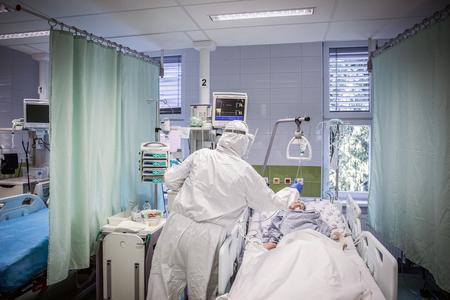Our paywall policy:
The Slovak Spectator has decided to make all the articles on the special measures, statistics and basic information about the coronavirus available to everyone. If you appreciate our work and would like to support good journalism, please buy our subscription. We believe this is an issue where accurate and fact-based information is important for people to cope.
The August 18 testing confirmed 100 new positive cases in Slovakia, which is the third-highest number since the coronavirus outbreak. A higher number of daily cases were revealed in the first half of April.
“The numbers have confirmed we’re already experiencing the second wave,” Health Minister Marek Krajčí (OĽaNO) commented, adding that when considering the number of new cases and the number of hospitalised patients, he expects it to be stronger than the first wave.
Commenting on the fact that the previous days revealed only a smaller number of new cases, he explained that fewer tests are carried out during the weekends, and hygienists usually search for the contacts of those that tested positive during the first days of the week, so the higher number usually appears in the middle of the week.
“The situation is under control though; there is no community spread,” Krajčí added. Still, he called on people to act responsibly.

Most cases from one company
A significant portion of new cases were identified in a company whose branches fall under the regional Public Health Authority (ÚVZ) offices in Bratislava, Trnava and Galanta. More than 30 staff members have tested positive so far, most of whom are seasonal workers coming from abroad. Krajčí did not want to specify the company's name.
“The testing of other staff members, including in the external transport service, is scheduled for the following days so the number of positive COVID-19 cases is expected to increase,” ÚVZ reported.
The facilities where the coronavirus-positive employees lived have been adopting anti-epidemic measures, like disinfecting the spaces and allocating spaces for isolation for those who tested positive and their contacts.
Both Krajčí and ÚVZ recommended companies to update their crisis plans and observing basic anti-epidemic measures, particularly if they hire staff from abroad.
Local measures adopted

Epidemiologists meanwhile adopted necessary anti-epidemic measures in problematic regions and are monitoring the uncovered outbreaks.
“Positively tested people and their close contacts that will soon be tested for COVID-19 are in home isolation,” ÚVZ reported.
While the measures are still being adopted on the local level, Krajčí admitted that if the situation worsens, they will consider other steps.
He also said that the group of experts should meet every two weeks, with the next session scheduled for August 27 at the latest.
“It’s possible we’ll adopt some measures earlier on,” Krajčí added.

